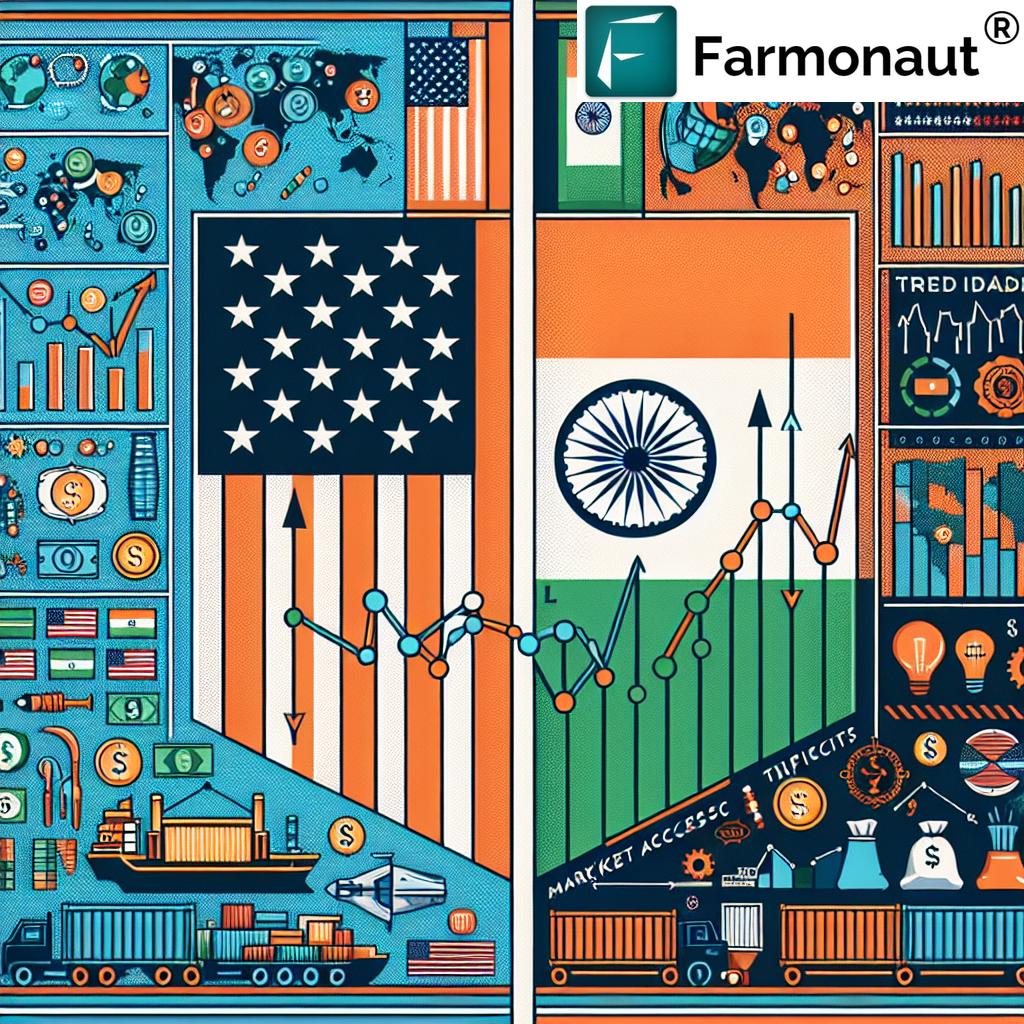Vijayawada’s Agricultural Revolution: Rs 43,402 Crore Budget Boosts Farm Tech and Rural Development
“Vijayawada’s 2024-25 agricultural budget of Rs 43,402.33 crore aims to revolutionize farming and boost rural development.”

In a groundbreaking move that promises to reshape the agricultural landscape of Vijayawada and surrounding rural areas, the government has unveiled an ambitious budget allocation of Rs 43,402.33 crore for the fiscal year 2024-25. This substantial investment signals a new era for farmers and agricultural development, focusing on integrating cutting-edge technology, promoting sustainable practices, and enhancing financial stability for those working in the agricultural sector.
As we delve into the details of this transformative budget, we’ll explore how it aligns with the government’s vision for the agriculture sector in 2047 and the immediate impact it’s set to have on farming communities. From innovative schemes to technological advancements, this budget is a testament to the government’s commitment to rural prosperity and food security.
The Vision Behind the Budget: Transforming Agriculture by 2047
The substantial budget allocation of Rs 43,402.33 crore is not just a figure; it’s a reflection of a broader vision for India’s agricultural future. The government’s agriculture sector vision 2047 is ambitious, aiming to create a landscape where farmers are financially stable, farming practices are sustainable, and rural areas are thriving centers of innovation and productivity.
- Enhancing farmer financial stability
- Promoting sustainable farming practices
- Integrating advanced agricultural technology
- Boosting rural development initiatives
This vision recognizes that the future of agriculture lies in the harmonious blend of traditional wisdom and modern technology. By investing in this sector, the government aims to not only increase agricultural productivity but also improve the quality of life for millions of farmers and rural residents.
Key Components of the Agricultural Budget
Let’s break down the major initiatives and allocations that form the cornerstone of this revolutionary budget:
| Initiative | Estimated Budget Allocation (in Crores) | Expected Impact |
|---|---|---|
| AP New Tenancy Act 2024 | 5,000 | Improved land rights and security for tenant farmers |
| Farm Implement Subsidies | 3,500 | Increased mechanization and efficiency in farming |
| Seed Subsidies | 2,000 | Access to high-quality seeds for better crop yields |
| Fallow Land Cultivation | 1,500 | Expansion of cultivable land and increased production |
| Drone Technology Adoption | 1,000 | Precision agriculture and efficient crop monitoring |
| Annadata Suhibhava Scheme | 10,000 | Direct financial support to farmers |
| PM Kisan Implementation | 8,000 | Income support for small and marginal farmers |
| PMFBY Coverage | 5,000 | Comprehensive crop insurance protection |
| Vaddi Leni Runalu Program | 2,500 | Interest-free loans to support farmer finances |
These allocations demonstrate a holistic approach to agricultural development, addressing various aspects from land rights to financial support and technological advancement.
The AP New Tenancy Act 2024: A Game-Changer for Farmers
“The AP New Tenancy Act 2024 is part of a comprehensive plan to enhance farmer financial stability by 2047.”
One of the most significant components of this budget is the introduction of the AP New Tenancy Act 2024. This groundbreaking legislation aims to address long-standing issues related to land tenancy and farmer rights. Here’s how it’s set to transform the agricultural landscape:
- Legal recognition for tenant farmers
- Access to institutional credit and government schemes
- Protection against arbitrary eviction
- Encouragement of long-term land improvement investments
By providing legal safeguards and financial inclusivity, the Act is expected to significantly boost farmer confidence and productivity. This, in turn, will contribute to the overall goal of enhancing farmer financial stability by 2047.
Empowering Farmers through Subsidies and Support
A substantial portion of the budget is allocated towards various subsidies and support schemes designed to ease the financial burden on farmers and promote advanced farming practices:
- Farm Implement Subsidies: Encouraging mechanization to increase efficiency and reduce labor costs.
- Seed Subsidies: Ensuring access to high-quality seeds for better crop yields and disease resistance.
- Fallow Land Cultivation: Incentives to bring uncultivated land under production, expanding the agricultural footprint.
These subsidies are not just financial aids; they’re strategic investments in the future of farming. By making essential inputs more accessible, the government aims to boost productivity and sustainability across the agricultural sector.
Embracing Agricultural Technology: The Drone Revolution
In a bold move towards modernizing farming practices, the budget allocates significant funds for the adoption of drone technology in agriculture. This initiative is set to revolutionize various aspects of farming:
- Precision crop monitoring and health assessment
- Efficient pesticide and fertilizer application
- Accurate land surveying and mapping
- Crop yield estimation and harvest planning
The integration of drone technology aligns perfectly with the services offered by agricultural technology companies like Farmonaut. Through its satellite-based crop health monitoring system, Farmonaut complements drone technology, providing farmers with comprehensive, data-driven insights for improved decision-making.
Comprehensive Government Agricultural Schemes
The budget reinforces and expands several key government schemes aimed at providing holistic support to farmers:
- Annadata Suhibhava: A direct financial support scheme to cushion farmers against market fluctuations and crop failures.
- PM Kisan: Income support for small and marginal farmers, ensuring a basic financial safety net.
- PMFBY (Pradhan Mantri Fasal Bima Yojana): A comprehensive crop insurance scheme protecting farmers against natural calamities.
- Vaddi Leni Runalu: An interest-free loan program to alleviate the debt burden on farmers and promote financial stability.
These schemes, working in tandem, create a robust support system for farmers, addressing various aspects of financial security and risk management in agriculture.
The Role of Technology in Shaping Vijayawada’s Agricultural Future
As we move towards a more technologically advanced agricultural sector, platforms like Farmonaut are playing a crucial role. Farmonaut’s satellite-based farm management solutions offer:
- Real-time crop health monitoring
- AI-based advisory systems
- Resource management tools
- Blockchain-based traceability solutions
These technologies align perfectly with the government’s vision of a modernized, efficient, and sustainable agricultural sector. By leveraging such advanced tools, farmers in Vijayawada and beyond can make data-driven decisions, optimize resource use, and improve crop yields.
Sustainable Farming Practices: A Core Focus
The budget’s emphasis on sustainable farming practices is evident in its allocation for:
- Organic farming initiatives
- Water conservation techniques
- Soil health management programs
- Crop diversification projects
These initiatives not only aim to protect the environment but also ensure long-term agricultural productivity. By promoting sustainable practices, the government is laying the groundwork for a resilient and eco-friendly agricultural sector.
Enhancing Rural Infrastructure
A significant portion of the budget is dedicated to rural development initiatives, recognizing that a thriving agricultural sector needs robust supporting infrastructure:
- Improvement of rural roads for better connectivity
- Expansion of irrigation networks
- Establishment of cold storage facilities
- Development of rural markets and e-mandis
These infrastructure developments are crucial for reducing post-harvest losses, improving market access, and enhancing the overall quality of life in rural areas.
The Impact on Farmer Financial Stability
One of the primary goals of this budget is to enhance farmer financial stability. This is being approached through multiple avenues:
- Direct income support through schemes like PM Kisan
- Risk mitigation through crop insurance (PMFBY)
- Reduction of input costs through various subsidies
- Access to credit through programs like Vaddi Leni Runalu
By addressing both the income and expenditure sides of a farmer’s financial equation, the budget aims to create a more stable and prosperous farming community.
Leveraging Technology for Precision Agriculture
The budget’s focus on agricultural technology adoption, particularly in areas like drone technology and satellite-based monitoring, opens up new possibilities for precision agriculture. This is where platforms like Farmonaut can significantly contribute:
- Providing accurate, real-time data on crop health and soil conditions
- Enabling targeted interventions for pest control and nutrient management
- Optimizing water usage through precise irrigation scheduling
- Facilitating better crop planning and yield forecasting
By integrating these technologies, farmers can make more informed decisions, reduce waste, and maximize their yields, ultimately leading to increased profitability and sustainability.
The Role of Data in Modern Agriculture
As we move towards a more data-driven agricultural sector, the importance of reliable, real-time information cannot be overstated. Farmonaut’s satellite-based crop health monitoring system plays a crucial role in this data revolution:
- Providing up-to-date vegetation health indices (NDVI)
- Monitoring soil moisture levels
- Tracking crop growth patterns over time
- Identifying potential problem areas before they escalate
This wealth of data, when combined with the government’s initiatives, can lead to more efficient resource allocation, better policy-making, and improved agricultural outcomes across the board.
Addressing Climate Change and Environmental Concerns
The agricultural budget also recognizes the pressing need to address climate change and environmental concerns. Several initiatives are aimed at making farming more resilient and environmentally friendly:
- Promotion of climate-resistant crop varieties
- Support for agroforestry and mixed farming systems
- Incentives for reducing chemical inputs
- Research and development in climate-smart agriculture
These measures not only help in mitigating the impacts of climate change but also contribute to the overall sustainability of the agricultural sector.
Empowering Small and Marginal Farmers
A significant focus of the budget is on empowering small and marginal farmers, who form the backbone of India’s agricultural sector. Initiatives aimed at this group include:
- Special subsidies and support for small-scale farming
- Training programs on modern agricultural techniques
- Facilitation of farmer producer organizations (FPOs)
- Targeted financial inclusion programs
By providing tailored support to this crucial segment of the farming community, the budget aims to ensure inclusive growth and development across the agricultural sector.
The Future of Farming: Integration of AI and Machine Learning
Looking ahead, the budget’s emphasis on technological adoption paves the way for the integration of artificial intelligence (AI) and machine learning in agriculture. This is an area where platforms like Farmonaut are leading the way:
- AI-driven crop yield predictions
- Automated pest and disease detection
- Personalized crop management recommendations
- Smart irrigation systems
These advanced technologies have the potential to revolutionize farming practices, making them more efficient, precise, and sustainable.
For developers interested in integrating agricultural data into their applications, Farmonaut offers a comprehensive API. Detailed documentation can be found in the API Developer Docs.
Conclusion: A New Era for Vijayawada’s Agriculture
The Rs 43,402.33 crore agricultural budget for Vijayawada and surrounding areas marks the beginning of a new era in farming. By focusing on farmer financial stability, technological adoption, sustainable practices, and comprehensive support schemes, this budget lays the foundation for a prosperous and resilient agricultural sector.
As we look towards the vision for 2047, it’s clear that the integration of advanced technologies, like those offered by Farmonaut, will play a crucial role in shaping the future of agriculture. From satellite-based monitoring to AI-driven insights, these tools will empower farmers to make better decisions, increase productivity, and contribute to a more sustainable food system.
The journey towards agricultural transformation has begun, and with continued support, innovation, and collaboration, Vijayawada’s farming community is poised to lead the way in modern, efficient, and sustainable agriculture.
FAQ Section
- Q: What is the total budget allocation for agriculture in Vijayawada for 2024-25?
A: The total budget allocation for agriculture in Vijayawada for 2024-25 is Rs 43,402.33 crore. - Q: What is the AP New Tenancy Act 2024?
A: The AP New Tenancy Act 2024 is a new legislation aimed at providing legal recognition and protection to tenant farmers, improving their access to credit and government schemes. - Q: How does the budget support technological adoption in agriculture?
A: The budget allocates funds for the adoption of drone technology, supports precision agriculture initiatives, and promotes the use of satellite-based monitoring systems like those offered by Farmonaut. - Q: What are some of the key government schemes mentioned in the budget?
A: Key schemes include Annadata Suhibhava, PM Kisan, PMFBY (Pradhan Mantri Fasal Bima Yojana), and Vaddi Leni Runalu. - Q: How does the budget address sustainability in agriculture?
A: The budget includes allocations for organic farming initiatives, water conservation techniques, soil health management programs, and crop diversification projects.
















